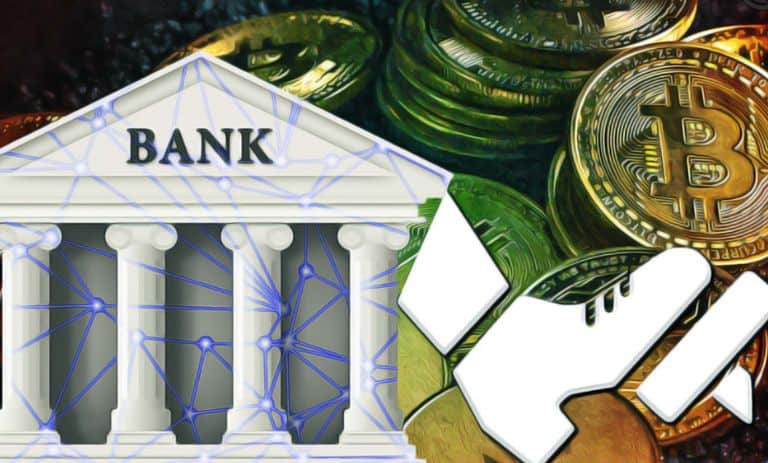The week the SEC finally approved spot Bitcoin ETFs: Law Decoded
More than ten years after the initial application was submitted, the cryptocurrency industry has at last witnessed the approval of spot Bitcoin (BTC) exchange-traded funds (ETFs) in the United States. On January 10, the U.S. Securities and Exchange Commission (SEC) granted approval to Bitcoin ETF applications from various entities, including ARK 21Shares, Invesco Galaxy, VanEck, WisdomTree, Fidelity, Valkyrie, BlackRock, Grayscale, Bitwise, Hashdex, and Franklin Templeton. While this decision marked a significant milestone for the crypto sphere, the journey leading to it was far from straightforward. The origins trace back to 2013 when Cameron and Tyler Winklevoss, co-founders of Gemini, submitted the initial application for a spot Bitcoin ETF in the United States.
The SEC’s decision to greenlight a spot cryptocurrency ETF in the U.S. for the first time has prompted speculation regarding the motives of Gary Gensler, the chair of the commission. Despite Gensler’s frequent emphasis on the risks associated with crypto investments and their connections to fraud and scams, he, along with two other commissioners, voted in favor of approving the offerings. The 3-2 vote outcome suggests that Gensler may have played a pivotal role in the decision. Some members of the community suggested that the SEC chair may have aligned with Wall Street, foreseeing an influx of investor funds with the expansion of crypto products. Others speculated that the approval of a spot Bitcoin ETF was inevitable, given the federal court mandate for the commission to review Grayscale’s offering.
However, not everyone greeted the SEC’s decision with enthusiasm. SEC Commissioner Caroline Crenshaw, one of the two commissioners who voted against approval, criticized the move as “unsound and ahistorical” in her statement. The nonprofit economic organization Better Markets also expressed harsh criticism, describing the ETF decision as approving an asset that is inherently worthless and lacks purpose. Bitcoin critic Peter Schiff joined the chorus, characterizing the approvals as merely providing new avenues for speculators to gamble on Bitcoin.
In a distinct development, the special economic zone of Próspera in Roatan, Honduras, has officially acknowledged Bitcoin as a unit of account, enabling its use for measuring the market value of goods and services. Initially, tax liabilities of Bitcoin-electing entities will be determined in BTC for internal accounting but reported to Próspera Zone for Employment and Economic Development (ZEDE) in U.S. dollars or the Honduras lempira. Once issues are resolved, entities will report and pay tax liabilities to Próspera ZEDE in BTC.
Shifting focus to India, Google’s Play Store has removed Binance and OKX crypto exchange apps following a noncompliance notice from the government. This follows a similar move by Apple’s App Store in December 2023, where the Financial Intelligence Unit (FIU) of the Indian Ministry of Finance issued notices to several exchanges, including Binance, for operating illegally. The FIU required these exchanges to register as “reporting entities” and submit statements to the income tax department, proposing the blocking of their websites for non-compliance.
Finally, Do Kwon, co-founder of Terraform Labs, has requested a postponement of his trial date until March. The request is based on extradition challenges in Montenegro, hindering Kwon’s ability to attend the trial scheduled for January 29. The SEC had filed fraud charges against Kwon in February 2023, accusing him of involvement in a multibillion-dollar crypto securities fraud related to the collapse of Terraform Labs’ stablecoin TerraUSD (USTC) and its associated Terra (LUNA) token. Despite recognizing the urgency of the trial, Kwon’s legal team asserted that attending this month’s trial date would be infeasible for him.
Why is Bitcoin price up today?
Introduction:
The cryptocurrency market is often characterized by its inherent volatility, and Bitcoin, as the flagship digital asset, frequently experiences significant price fluctuations. Today’s surge in the price of Bitcoin has captured the attention of investors, analysts, and enthusiasts alike. This article delves into the various factors contributing to the current upward momentum of Bitcoin.
Market Sentiment and Speculation:
One of the primary drivers behind Bitcoin’s price movements is market sentiment. Investor confidence, news developments, and overall sentiment in the financial markets play a crucial role in shaping the trajectory of Bitcoin prices. Positive sentiment, fueled by favorable news or market optimism, can attract more buyers, leading to increased demand and upward price pressure.
Institutional Adoption:
Over the past few years, there has been a growing trend of institutional adoption of Bitcoin. High-profile companies, investment funds, and traditional financial institutions have shown increasing interest in incorporating Bitcoin into their portfolios. Institutional investors bring substantial capital into the market, and their participation often results in increased demand, positively impacting the price of Bitcoin.
Regulatory Developments:
Regulatory clarity and developments can significantly influence Bitcoin prices. Positive regulatory news, such as increased acceptance or supportive legislation, tends to boost investor confidence. Conversely, negative regulatory developments or uncertainty may lead to price declines. Traders closely monitor government statements, regulatory decisions, and legislative initiatives to gauge the potential impact on Bitcoin’s market dynamics.
Global Economic Conditions:
Bitcoin is often referred to as “digital gold” or a store of value, and its price can be influenced by macroeconomic factors. Economic instability, inflation concerns, and currency devaluation in traditional financial markets may drive investors toward Bitcoin as a hedge against economic uncertainties. Today’s price increase might be a response to prevailing global economic conditions that favor alternative assets like Bitcoin.
Technological Developments:
Advancements and innovations in the blockchain and cryptocurrency space can impact Bitcoin prices. Positive developments such as upgrades, improvements in scalability, or increased adoption of blockchain technology may contribute to a positive market sentiment. On the other hand, technical challenges or security concerns can have adverse effects on prices.
Supply and Demand Dynamics:
Bitcoin’s capped supply at 21 million coins makes it inherently deflationary. The relationship between supply and demand plays a crucial role in determining its value. The Bitcoin halving events, which occur approximately every four years, reduce the rate at which new coins are generated. This diminishing supply, coupled with sustained or increasing demand, can lead to upward price movements.
Conclusion:
In conclusion, the surge in Bitcoin prices today is likely the result of a combination of factors that collectively contribute to the dynamic nature of the cryptocurrency market. Investors and analysts must consider the interplay of market sentiment, institutional involvement, regulatory influences, economic conditions, technological advancements, and supply and demand dynamics when seeking to understand and interpret the fluctuations in Bitcoin prices. As the cryptocurrency landscape continues to evolve, staying informed about these various factors becomes paramount for those navigating the exciting yet unpredictable world of digital assets.









